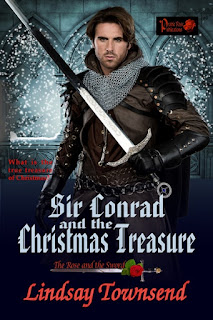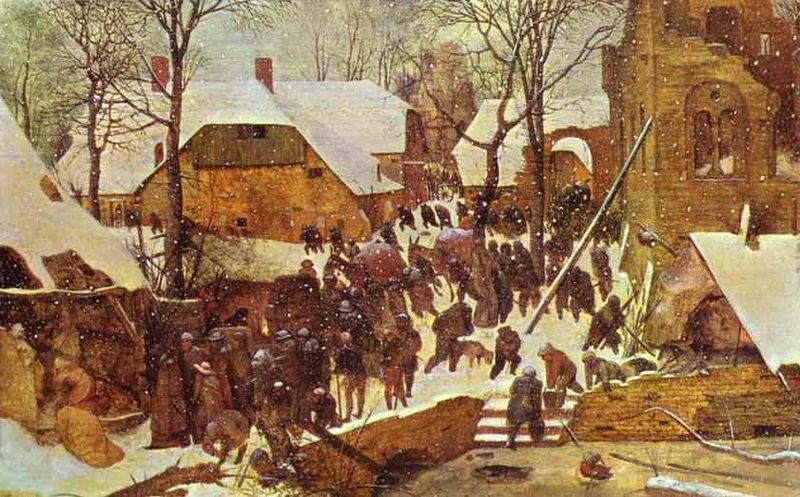I am fascinated by gold. People in the past were also inspired by it and made many beautiful objects with the metal. One of these ancient treasures is a torc and in my latest historical romance, "Sir Conrad and the Christmas Treasure" I have a torc as a precious relic at a northern church.
I had in mind the magnificent Snettisham gold torc as my relic. Here it is.
 |
| From the British Museum |
Here's an excerpt from my sweet Christmas romance, "Sir Conrad and the Christmas Treasure" where we see Sir Conrad and Maggie together.
Chapter 2
A gathering of horses, war-chargers, palfreys and spare mounts, a hasty bringing together of men, weapons and supplies, and they were off. They pounded out of the bailey, through the village and onto the track to the old Roman road. Sunrise to sunset they rode and then on through the night, sunset to sunrise. Riding in front of Conrad, his thick arms braced on her either side, Maggie felt her world shrink down to her heartbeat, the scalding ache of her thighs, the glare of snow and the relentless drum of the galloping horses.
Had she ever imagined the recovery of Michael would be an adventure? Wishing she could clasp her aching head but not daring to relinquish her grip on the horse’s mane, Maggie longed to stop.
“You awake there?” Conrad growled, his lips close to her ear. She shook her head as if he was a bothersome fly and forced her wind-chapped lips to reply.
“Doing well,” she said, determined her teeth would not chatter. In truth she was not so frozen. Sir Conrad had supplied her with a thick cloak and a woollen cap, cloths to wrap round her boots and rags to bind her hair. If I could only have some eastern cushions for my hips, perched on this bony nag. Who knew horses had such a spine? Glancing sidelong she caught a knowing gleam in her companion’s deep eyes, as if he expected her to complain. But I shall not.
“Yourself?” She tried a smile, the cold light of the coming dawn piercing her cheeks.
“We make camp soon, rest the horses.”
“Naturally. The horses. And the pack mules,” she added, wondering why she was teasing him as she might have done Michael. The truth was, she had ridden with this man for hours, her back snug against his chest, her legs pressed against his long shanks. It was hard not to feel a kind of closeness to him.
Now, she felt rather than heard Conrad’s rumble of a chuckle and knew a fleeting lightness in her soul as his arms tightened briefly about her.
“You will not be outdone, will you?” He guided their mount onto an unpaved section of road that did not jolt her bones, which was overall a blessed relief.
“Is this a contest?” she replied, catching her wind-sore mouth in a yawn before she could stop it.
He smiled against her woollen cap and Maggie closed her eyes. The great horse moved beneath her, smooth now as a sailing ship on a calm river, the beat of its hooves strangely soothing, like a lullaby. I wonder how Michael is faring, she thought as she slid slowly, inexorably into sleep.
****
Conrad gently lowered the sleeping girl onto the rough pallet of bracken and hay that he had set before the new fire. She had done well, he decided, nodding to Davie, a silent reminder that the man guard her, before he checked on the horses and men. A palfrey had picked up a gorse or bramble tear on her flank. Conrad was conferring with a groomsman how to treat the wound when the weary peace of the camp shattered.
Lurching out of the darkness, Maggie staggered back to the fire, plucked out a burning branch and brandished it at the figure coming after her.
“Back!” she cried, stabbing the flaming brand at her would-be attacker, “You will get none of what you want from me!”
Conrad thrust the salve at the nearest groom and began striding back, to hear the farrier, Brian, say, without shame or apology,
“Come on, goldie, I can give you a sweet time—”
“What is happening here?” Conrad pushed between the pair, scenting the mead on the farrier’s breath.
“A bit of sport.” Brian swayed on his feet, squinting past the taller man as he gave the girl a wave. Has this fool been drinking all night? Supping while on horseback?
“I do not expect to be set upon when I slip into the hazels to pass water!”
“You take on so, goldie, not fair—”
She took a deep breath that would have fit a dragon, clearly ready to light into the fellow afresh, when Sir David with his uncanny ill-luck, stepped out of the trees where he had been setting guards and said drily, “Women following soldiers are usually bed-mates.”
“I am not following anyone!” snapped Maggie, as red-faced as a dragon’s fiery breath, “I am seeking my brother and your lord is meant to be aiding me! Or do such courtesies only count for knights and ladies?”
Conrad sensed the camp about them stiffen and knew his men were leaning in to listen.
“Ladies do not bawl like market criers,” he drawled.
The bright stare cut towards him. “How else am I supposed to be heard?”
“Enough!” He made a cutting motion with his arm, tired of the whole squabble, and addressed his men. “The girl is with me, mine, and you all know it. Brian, get yourself a pail of water and dunk your head. We move on in two hours, when the sun tops that pine tree. Get on!”
He caught the girl’s arm and led her, none too gently, back to the pallet by the fire. “You stay,” he ordered, ignoring her look of utter betrayal.
He turned to leave, go back to the horses, when a narrow wiry hand grabbed his cloak. Looking back, he almost flinched at the flinty glare which stabbed him.
“You need the farrier, yes? But mark this, my lord, you also need me.”
His temper bridled at her insolence. He leaned down into her face, part of him amazed at how very blue her eyes were, in her anger. “I just saved you from a mauling or worse. Why did you not wait for me to escort you? Are you so naive?”
If she could, she would have shot poison like a snake, he guessed, though her words were pin sharp. “I did not know such courtesy was required in your own camp.”
Not even a gesture of thanks, the ungrateful little wench. Did she think they were equals? “You do not tell me how to govern,” he began afresh, but she interrupted,
“Then rule yourself first. I thought you, sir, were different.”
With the I was wrong hanging between them, she stepped aside and flounced down on the pallet with such force that a puff of hay-dust rose in the air between them. Sensing he had made a mistake, loathing that feeling, Conrad stamped back to the horse lines.
Later, too brief a time to be truly rested, they rode on, into the forest of Galtres. The girl sat before him, silent as a stone. I thought you were different. “What happened to you?” he growled, too low for her to hear. He disliked her being so stiff, that was all.
I do need my farrier. She had no right to complain. As for Brian approaching her, it is the way of the world. In a war-band, everyone expects it.
So why did these reasonable justifications seem hollow?
Here's another excerpt, where we see the golden treasure of Ormingham church.
Inside the church Conrad noted that his brother and
the earl were most keen to see the treasures within its crypt. In contrast,
Maggie—or Margaret—was intent on the stout door of the underground chamber, the
narrow stone steps leading down to it and the huge key the priest produced from
his surplice to unlock the sanctuary.
“No one has ventured here for a while, thank our holy
mother,” she observed, as the priest shouldered open the thick door and Richard
and Earl John jammed together in the small opening in their haste to be first
into the crypt.
Would
be funny, I vow, were my girl’s plight not so serious.
“Why do you say that?” Conrad asked aloud, interested
in her and her reasons rather than the costly trinkets stashed within.
Maggie smiled, her eyes less strained than he had seen
them for two days, and pointed down. “Dust and cobwebs on the steps, before the
holy father walked down,” she answered, “which means no thieves, either, so we
can set a trap for them here.”
“Snares have no places in the house of God!” protested
the priest, while Conrad could only think she
said we. She is glad we work together. In that instant his joy burned as
fierce as the newly-lit torches.
“By all the saints, look at this!” Richard’s loud
excitement over-rode the cleric’s disgust and the earl rocked back and forth on
the heels of his two-tone coloured shoes, murmuring, “My, my, such handsome
works.”
Curious where he had not been greatly intrigued
before, merely staying with Maggie to ensure she was safe, Conrad waited for
the smoke of the priest’s spitting, damp torch to settle, and then looked for himself.
So much bright gold, was his first thought, while
Richard, naturally stretched out sticky fingers to paw at the pieces and Earl
John intoned, “Roman, or earlier, and fit for a king.”
“This is the holy moon torc of Saint Oswald!” snapped
the priest, keen to put the church’s ownership beyond doubt, “Discovered in a
pond near here by my great-grandfather!”
“I have heard tell of such sacred wonders before,”
said Conrad, hoping to prevent the priest and earl from saying more in anger or
gold-greed that they could not take back.
“It was a woman’s,” said Maggie softly beside him,
glancing once at him to share her thought.
“Why do you say that?” asked Conrad.
She pointed. “Because of the safety chain.”
Here's a picture of the gold torc with safety chain that inspired me.
 |
| From YouTube |
My sweet medieval historical romance, SIR CONRAD AND THE CHRISTMAS TREASURE, is now out. You can read it for free with Kindle Unlimited.
On Amazon. Com here
And Amazon UK here


.jpg)


.jpg)


















